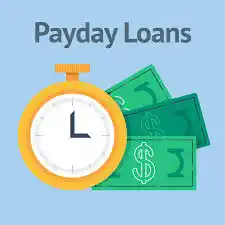What Is a Payday Loan? How It Works, How to Get One, and Legality

Financial emergencies can arise when you least expect them. Payday loans have emerged as a solution for those who need quick cash to cover unexpected expenses.
In this article, we’ll delve into what payday loans are, how they work, the process of obtaining one, and their legal status.
What are Payday Loans?
A payday loan, also known as a cash advance, is a short-term loan typically taken out by individuals who need immediate funds to tide them over until their next paycheck.
These loans are designed to provide quick cash to cover urgent expenses such as medical bills, car repairs, or other unexpected financial needs.
Payday loans are usually small amounts, and they are repaid within a short timeframe, often on the borrower’s next payday.
How Payday Loans Work
1. Application
To apply for a payday loan, individuals need to provide proof of income, a valid ID, and a post-dated check or authorization for electronic withdrawal. Some lenders may require additional documentation.
2. Approval and Disbursement
Once the application is approved, the borrower receives the loan amount, minus any fees. This amount is typically deposited into the borrower’s bank account or provided in cash.
3. Repayment
Payday loans are short-term loans, usually ranging from two to four weeks. On the due date, the borrower is required to repay the loan amount plus fees. This is usually done through automatic withdrawal from the borrower’s bank account.
4. Rolling Over
If a borrower cannot repay the loan on time, they may have the option to roll over the loan by paying additional fees. This extends the repayment period, but it can lead to a cycle of debt if not managed carefully.
How to Get a Payday Loan
1. Research Lenders
Research various lenders to find reputable ones with reasonable terms and interest rates. Read reviews and understand the terms and conditions.
2. Gather Documentation
Prepare the necessary documentation, such as proof of income and identification.
3. Apply
Fill out the lender’s application form, providing accurate information.
4. Review Terms
Carefully review the loan terms, including interest rates and fees, before accepting the loan.
5. Repayment Plan
Have a clear plan for repaying the loan on time to avoid extra fees and potential debt traps.
Legality of Payday Loans
The legality of payday loans varies from country to country and even from state to state within certain countries.
While they are legal in many places, regulations often exist to protect borrowers from unfair practices.
Some jurisdictions impose interest rate caps, limit the number of loans a borrower can take within a certain period, or require lenders to disclose all terms clearly.
FAQs
Are payday loans a good option for long-term financial needs?
No, payday loans are designed for short-term emergencies. Relying on them for long-term needs can lead to a cycle of debt due to high interest rates.
Can I get a payday loan with bad credit?
Yes, many payday lenders do not perform extensive credit checks, making them accessible to individuals with poor credit. However, this can result in higher interest rates.
What happens if I can’t repay the loan on the due date?
If you can’t repay the loan, you may have the option to roll it over by paying additional fees. This can lead to a cycle of debt, so it’s important to communicate with the lender and explore alternatives.
How much can I borrow with a payday loan?
The loan amount varies based on the lender and your income. Typically, payday loans are for small amounts ranging from $100 to $1,000.
Also Read: Alternatives to Payday Loans in 2024




